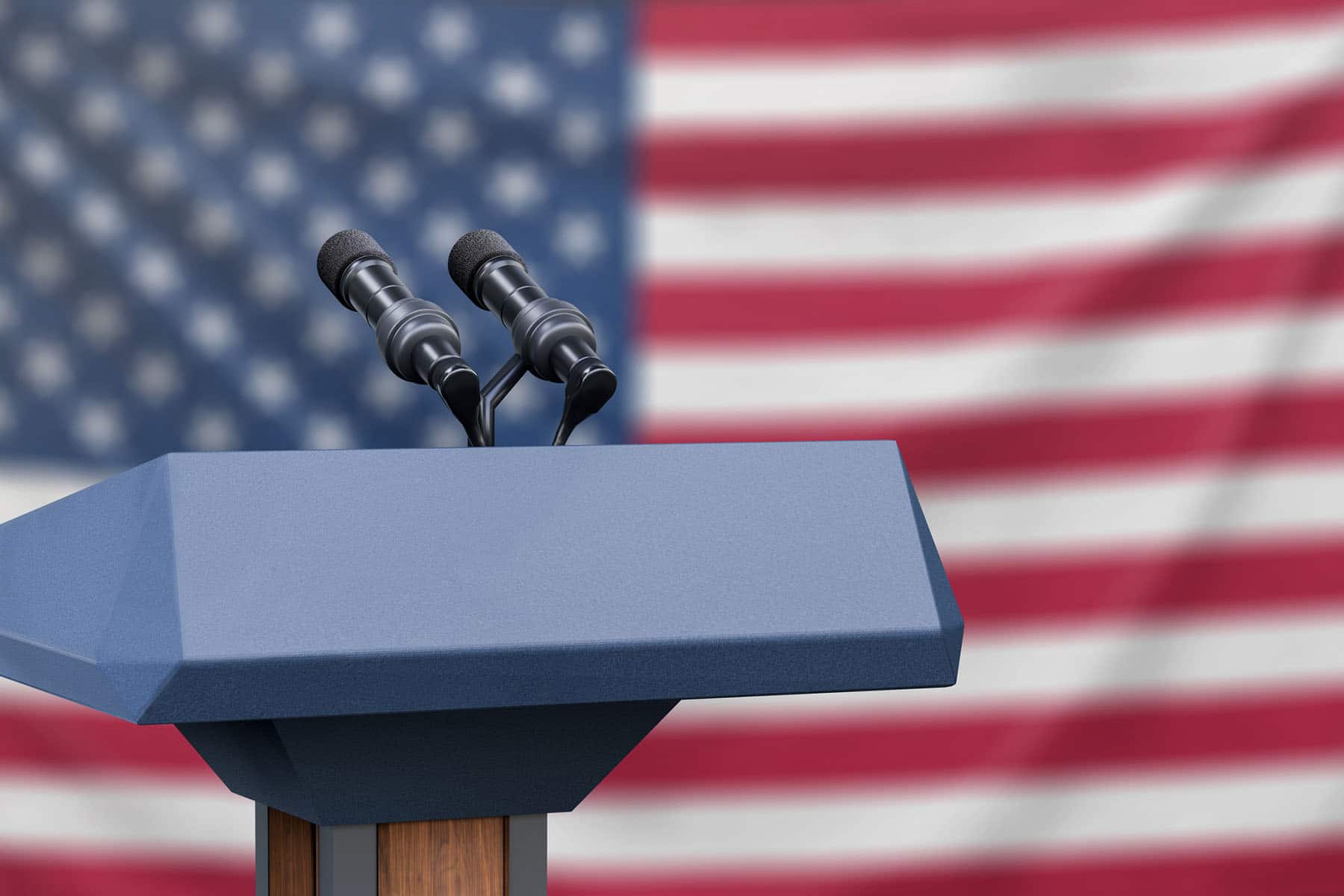 Photo by Derek Brumby/Getty Images
Photo by Derek Brumby/Getty Images It’s an annual Jewish tradition, like sitting around seder tables at Passover or lighting candles at Hanukkah.
No, I’m not talking about a religious ritual. I’m talking about the argument over the existential question: Should rabbis talk politics in their Yom Kippur sermons?
As in all good debates, there are two sides.
“I am endlessly besieged by requests to take on this or that political or social issue,” Rabbi David Wolpe wrote in the Journal in 2017. “If it is a left-wing cause, I will be rebuked for neglecting prophetic ethics, which is the guardian of the widow and the orphan (and the climate and the transgendered). If it is a right-wing cause, I will be reminded of the primacy of peoplehood and objective moral law (and the sanctity of unborn life and the free market).”
Wolpe was conveying the divisiveness of politics. He also confronted those who believe Torah points in only one political direction:
“I know outstanding rabbis on the left of the political spectrum and others on the right. You can love Torah and vote for Trump. You can love Torah and think Trump is a blot on the American system. What you may not do, if you are intellectually honest, is say that the Torah points in only one political direction.”
His conclusion: “All we hear all day long is politics. Can we not come to shul for something different, something deeper? I want to know what my rabbi thinks of Jacob and Rachel, not of Pence and Pelosi.
“Don’t tie your Torah to this week’s headlines. We are better, bigger and deeper than that.”
In his rebuttal, Rabbi Rick Jacobs wrote that “although one can certainly love Torah and follow different political paths, one cannot claim to be a lover of Torah and not care about how our society treats those in need, the weak, the vulnerable, the stranger and the oppressed.”
While acknowledging that “synagogues should never be places of partisanship,” Jacobs added, “Sermons that ‘speak up’ on the great moral issues of our world and our lives may address politics and policy as a means of addressing such moral issues but they are not about politics. On the contrary, they are about our Jewish values; the values we teach and the values we pass on to our children; the values that have kept us together as a people for centuries.”
Two strong views. Which side am I on? Both, of course.
I’m all for rabbis speaking up on the great moral issues of the day to make us more sensitive, as Jacobs says, to the plight of “the weak, the vulnerable, the stranger and the oppressed.”
But here’s where I part with Jacobs: Once a rabbi starts to promote specific policies to address societal ills, the message becomes a source of communal division. Two people can share a concern for a problem without agreeing on the solution. When a rabbi picks a side on solutions, we’re back to divisive partisanship.
Once a rabbi starts to promote specific policies to address societal ills, the message becomes a source of communal division.
I’m with Wolpe on one key point: Rabbis ought to avoid divisive issues from the pulpit. We come to synagogue for inspiration, not division.
So, my advice for anyone making a Yom Kippur sermon: If you choose to talk about the serious problems in our world, there’s no need to tell me which politics will best fix them.
Promoting compassion without politics is also inspiration.
Have a meaningful fast.























 More news and opinions than at a Shabbat dinner, right in your inbox.
More news and opinions than at a Shabbat dinner, right in your inbox.